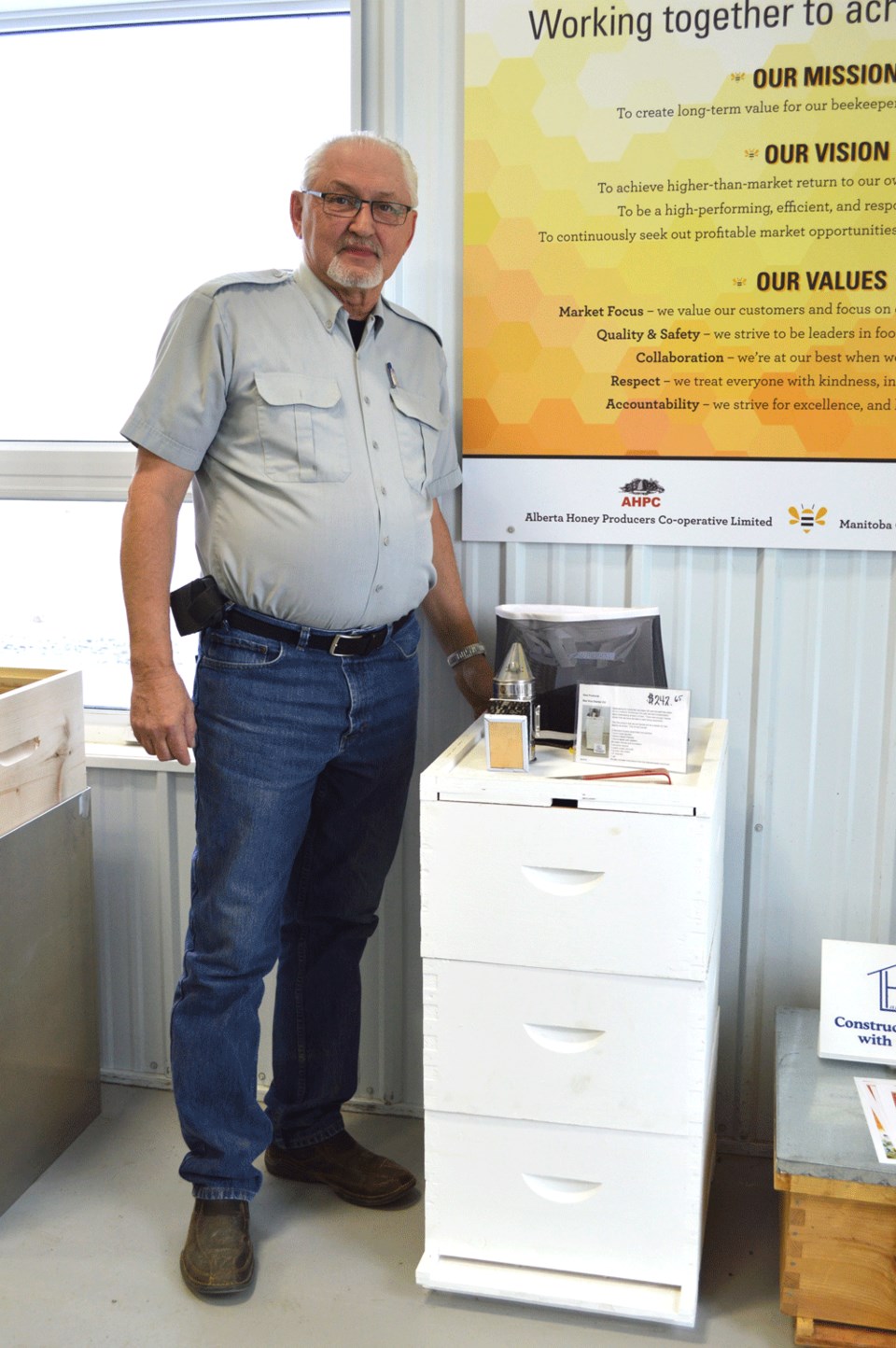Backyard beekeepers may be on the rise, but one honey and equipment company warns that won’t necessarily ‘save the bees’.
John Sochaski and Candis Sharpen work for Manitoba Honey Co-op, also known as the Bee Outfitters in Tisdale. They’re seeing sales of backyard beekeeping kits rise, but they have some words of warning for beginner hobbyists.
“Everybody wants to do their part to save the bees, because there’s been a lot of media surrounding the decrease in bee populations,” said Sharpen Feb. 23. “They think they’re doing their part.”
But, Sharpen said, training about diseases is essential.
“It can potentially spread diseases if you’re not treating your bees properly. Then your bees go to the neighbour’s bees, and make the neighbour’s bees sick, and then the neighbour’s bees go, and so on.”
Sochaski said the Outfitters will be putting on a course in May to encourage mite treatments and medicines.
“And then showing them how to look after the hive. It’s pretty depressing when you see some hives out there that hobbyists have done, they just throw them in the box,” he said.
Foulbrood
One disease the duo identified as potentially dangerous is foulbrood.
“They need to be able to recognize the diseases, specifically foulbrood. John’s kept bees forever, so he can smell it when he goes into a yard,” said Sharpen.
“Someone that has no knowledge, they won’t notice that, and they’ll put out a frame, and they won’t notice that there’s foulbrood in it. They’ll just think their bees are depleting and not know why.”
Sharpen said the disease spreads rapidly and affected equipment has to be burned and replaced – an expensive loss for a hobbyist.
Sochaski was concerned about changes that may be coming to the industry. Soon, outfitters like the one in Tisdale may not be able to sell medicine to prevent bee diseases. Instead, veterinarians will be responsible for distributing the medicine.
“Everybody is getting a little excited because the vets don’t know what to look for,” he said. “The foulbrood is devastating to a hive. It’ll kill a hive in a year.”
Current treatments for the disease don’t cure it, but they do help stop the spread.
Increase in interest
A few days after their interview, Sochaski and Sharpen planned to start preparing the backyard kits for a brand-new customer: Costco.
“They’re going to try it in Ontario, Quebec and B.C., just to see how it goes. We’re hoping it goes and then it’ll really expand, because it’ll go to all the provinces in Canada,” said Sochaski.
The company already provides beekeeping starter kits to Federated Co-ops. The kits include a brood box, frames, two-way lid, entrance reducer and bottom board, along with a smoker, veil and hive tool.
Hobbyists have different reasons for wanting to keep bees.
“They like it for their gardens and their fruit trees – they pollinate them – and they just love watching them. They’re busy, they’re interesting. You can look into a hive one day, come back the next day, and it’s totally different.”
Sochaski, who has kept bees for 45 years, can relate to the love of bees.
“I’ll leave work here at 5, go to the bee yard and just sit there and go through hives and it calms me. I don’t worry about what’s happening the next day,” he said. “That time is my time.”




